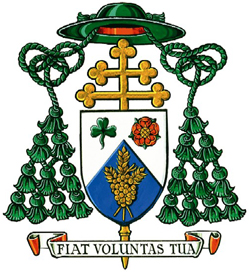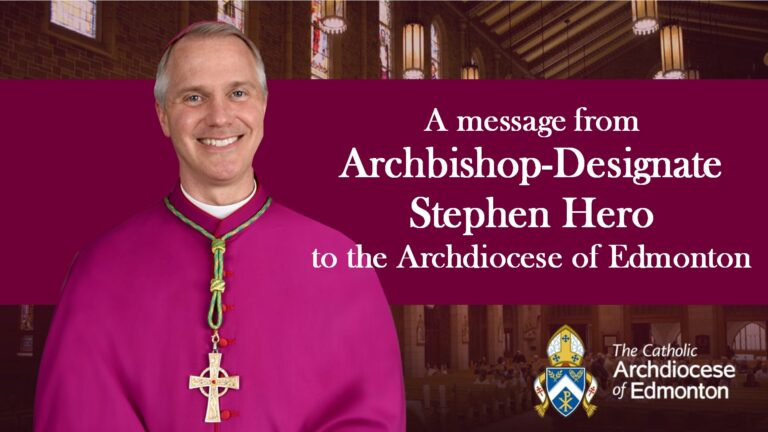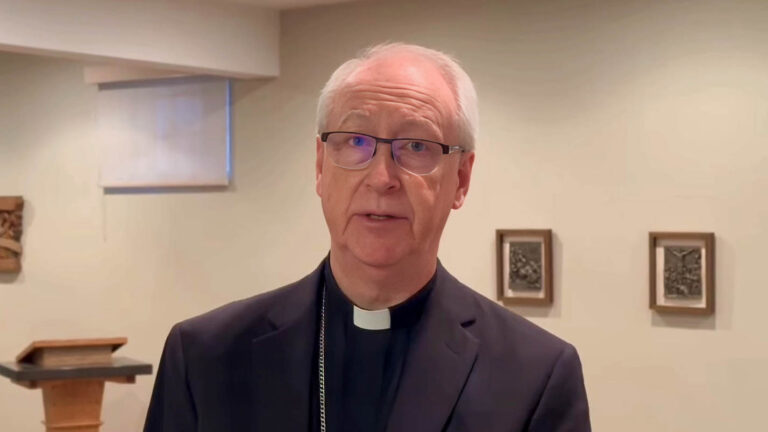Homily
[Genesis 3: 9-24; Psalms 90; Mark 8: 1-10]
The annual mass that I celebrate here at the mausoleum normally takes place just prior to Christmas, as you may know. This year, COVID kept that from happening. Clearly, it still is hampering our efforts to be together for the Eucharist. In fact, this is to my mind one of the most painful side-effects of this pandemic; the disease is robbing people of the opportunity to gather, even at moments when assembling with other people matters the most. At no time is that gathering more important than when we grieve the loss of someone we love. It is especially then that we need people near to us.
Well, there is one who can always draw near, regardless of circumstances. No pandemic, no barrier at all, can separate him from us. I speak, of course, of the Lord Jesus. He is the one we need with us more than anyone else. He is the reason we can live in hope even during moments of painful grief.
Jesus has conquered death, so we know that our loved ones who died believing in him can look forward to the eternal life his death and resurrection make possible. As Jesus comes to us, he wants nothing more than to nourish us with that hope and in this way assuage our grief.
This profound compassion of our Lord and his desire to care for us emerges clearly from the scriptural texts we have just heard. At first glance, we may wonder what the miraculous feeding of four thousand people with a few fish and little bread could say to us in our grief over the death of people we love. Well, the Gospel passage does speak directly to our situation. We can see this if we consider some important details in it.
First, consider the reaction of Jesus to that hungry crowd. He tells his disciples that he has compassion for the people. That word, compassion, doesn’t quite capture the force of the original language of the text, which conveys that the Lord was deeply moved, inwardly shaken, at the sight of the people’s plight. Here we see the profound love of Jesus for us. Our pain moves him to a degree we can scarcely imagine, and in consequence he comes close to do for us what no one else can do, to do what we are powerless to do for ourselves. So we can be sure that Jesus is very close to us now, especially if our grief is new and deep.
Notice, too, where the miraculous feeding took place. It happened in a desert. When a loved one is taken from us through death, life becomes like a wilderness. Our surroundings feel desolate because the one we love is no longer there. Where streams of laughter and companionship once flowed, there is now the dry land of absence. Grief occasions in our hearts a desert-like experience, within which we grow very hungry for “food” that will nourish us with hope. Jesus fills that hunger, not with bread, but with his presence. Having him with us is the only food that can fully satisfy our craving for hope.
This leads to another detail: the reaction of the disciples. Facing the enormity of the challenge created by very little food for the multitudes, they actually wondered if Jesus could do anything. “How can one feed these people with bread here in the desert?” Well, the Lord showed them precisely what he could do in the miracle of multiplication of the little into a superabundance. When our pain is deep, and when circumstances seem far beyond anyone’s ability to fix or handle, the temptation can also arise in our hearts to wonder if Jesus can actually do anything about it. Well, he certainly can, and will usually act in a way that astonishes us. All that Jesus asks is that we give him the little faith that we have, so that he can expand it and enable us to see how he is acting in our lives. It is precisely this multiplication of our faith, if you will, that Jesus uses to feed us with a superabundant hope beyond human understanding.
Finally, what about that mysterious first reading, which outlines the immediate consequences to Adam and Eve of their original sin. How on earth is that a consoling message to people struggling with grief? It sounds rather more terrifying than comforting. Here again, what God is saying to us emerges in some significant details of the narrative.
When God addresses the serpent, He foretells that one will come to crush his head, to be, in other words, victorious over evil and the consequences of the sin it engenders. What we see here is God responding to the rebellion of Adam and Eve not with a pledge of vengeance but a promise of mercy.
Let’s not overlook either how God sends them forth from the garden. Their separation from God is the natural and logical result of their rebellion, yet God makes protective garments for them, symbolic of the care and protection with which God would continue to accompany His people until they are restored fully to Him through the gift of His Son. What this says to us is that not even human sin can lessen God’s love for us; in fact, what we see here is human sin actually moving God to deep compassion and healing action. We need not – we must not – think that because of our past sins and mistakes God will not hear us now as in our grief we cry out in need. God is always moved by our weakness and suffering and will not leave us unaided.
So, we turn to the Eucharist with confidence and hope. The same Jesus, who out of deep compassion fed the hungry with simple bread in the desert, now with that same love appears in our wilderness to feed us with the Bread of Life. By receiving it in faith, may we be nourished with hope and our hunger satisfied.
Most Reverend Richard W. Smith
Holy Cross Mausoleum
February 13th, 2021



